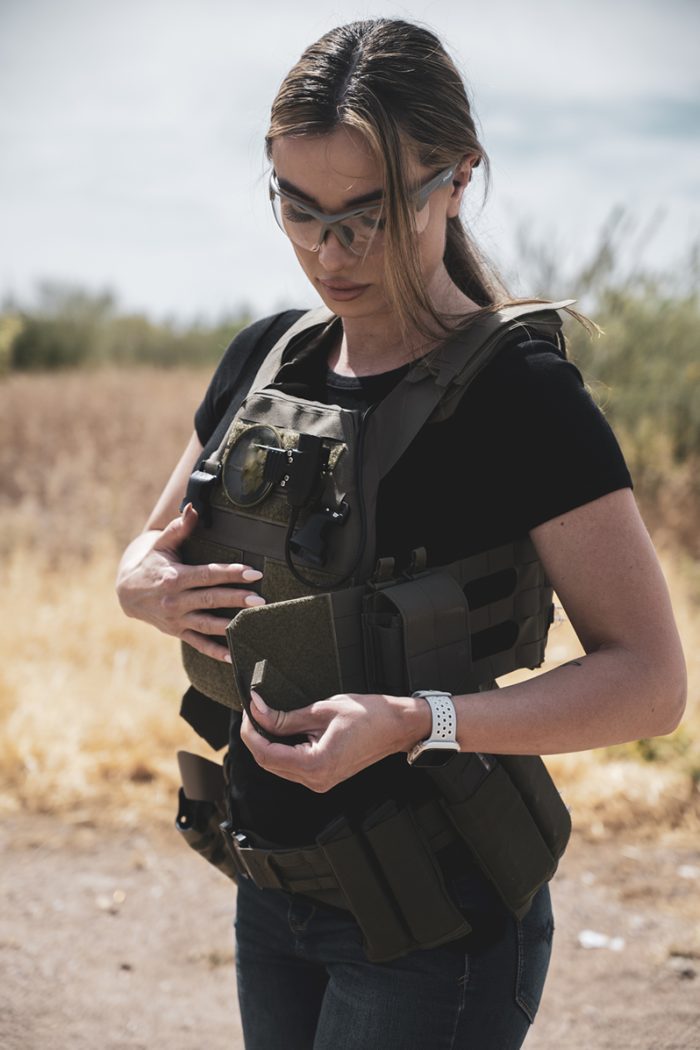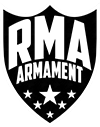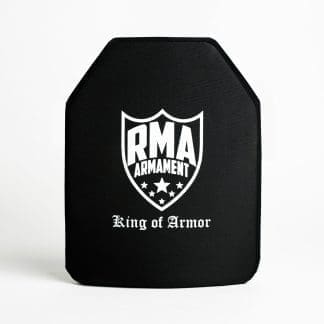Showing 13–14 of 14 results
-
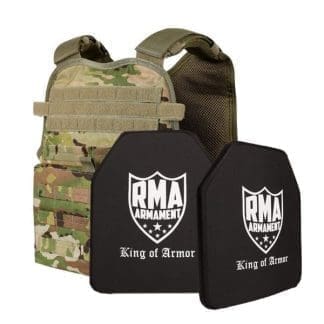
Level IV Operator Kit w/ Model #1155 Plates
Price range: $405.23 through $448.93 Select options This product has multiple variants. The options may be chosen on the product page -

Lightest Level 4 Plates (Model #1192) – Multi Curve
$699.00 Read more Weight: 5.9 lbs. Thickness: 0.9"
Showing 13–14 of 14 results
LEVEL 4/LEVEL IV PLATES
Manufacturing American-made lightweight ceramic body armor with Level IV protection isn’t cheap or easy. However, RMA has created the Lightweight Level 4 Plate model 1165 which combines a lightweight and thin profile at an affordable price. But if you’re looking for an even lighter plate, our model 1192 Level 4 body armor plate in multi-curve medium sizing may be for you.
When you need affordable high-grade protection, choose the 1155 Level 4 Plate.
RMA builds our Level 4 armor selection with a high content purity ceramic strike face. Ceramic breaks apart the round and a polyethylene backer that catches the slug and remaining fragments like a catcher’s mitt. By any metric, RMA Armament makes the best ceramic armor plates on the market.
Kit out our body armor with plate carriers, ballistic helmets, bulletproof vests and so much more. All of our ballistic protection is 100% Made in the USA!
WHAT DO LEVEL 4 BODY ARMOR PLATES STOP?
Level 4 plates are the highest protection level available. We design Level IV plates to stop some of the most powerful armor-piercing rounds from rifles and other high-powered firearms at a distance of 15 meters or less per NIJ standards. Level 4 body armor stopping power is enough to stop the following types of munitions based on NIJ testing:
- 7.62x63mm M2 AP (.30-06 Armor Piercing)
Level 4 plates will also defeat additional threats including:
- 7.62×39 123gr PS Ball (MSC)
- 7.62×51 147gr FMJ (M80) – up to 2850 ft/s
- 5.56×45 55gr (M193) – up to 3150ft/s
- 5.56x45mm 62 grain steel core (M855)
- 5.56x45mm M855 A1
National Institute of Justice (NIJ) creates body armor standards in the United States. Level IV is the highest standard, designed to defeat armor-piercing rifle fire. We test all of our level 4 body armor against 30-06 M2AP per Level IV standard. Every armor plate has a laboratory ballistics report from an NIJ-accredited laboratory on the product page. So, you can be sure you know what you’re buying from RMA.
Understanding body armor ratings can be complicated. We have made a comprehensive guide on this topic to explain the rating system so that you can decide which rating is right for you.
In the next section, we’ll look at how level 4 body armor is made and explore the different level IV ballistic plates available.
HOW TO MAKE LEVEL 4 BODY ARMOR
A Level 4 plate has two distinct components. They require a strike face and a backer. Every level 4 plate has a ceramic strike face. Backer materials vary depending on the manufacturer and model.
Manufacturers use four main types of materials constructing level 4 body armor plates: ceramic, E-Glass, aramid, and polyethylene. Each material has its own unique properties and benefits.
Ceramic + E-Glass is the heaviest. Ceramic + polyethylene is the lightest. Most hard armor manufacturers have abandoned aramid. Aramid requires the same complicated machining that polyethylene requires. However, it offers only minimal weight savings over E-Glass. It is both heavy and expensive. Here at RMA, we use both E-Glass and polyethylene to offer both highly affordable and lightweight options. The lightest level 4 plates have ultra high-strength ceramics like boron carbide, which dramatically cuts weight.
LEVEL 4 / LEVEL IV CERAMIC PLATES
Ceramic is the only material that can be used for level 4 body armor strike faces. Every Level IV plate in existence has a ceramic strike face. We make them from a combination of ceramic plus E-Glass, Aramid, or Ultra High Molecular Weight Polyethylene. The result is a hard, strong plate that can stop most high-powered and armor-piercing rifle rounds.
Ceramic plates work by shattering the round upon impact, converting the kinetic energy into heat energy, and catching the remaining pieces in the backer. Thus, reducing the risk of injury to the wearer. Most Level 4 plates are multi-hit capable. However, you need to replace them after sustaining damage.
LEVEL 4 / LEVEL IV STEEL PLATES
Steel plates are not an option for level 4 body armor. They are incapable of defeating 30-06 M2AP rounds. Steel plates can only rate up to III+ protection. There are no steel Level 4 plates in existence. All level IV plates require a ceramic strike face.
Steel plates are often heavier than ceramic plates, but they are very durable and can withstand many hits from their rated threats like M855. The tradeoff is that these plates are less effective at stopping many rounds than ceramic plates, and they are less effective at dispersing energy from a bullet impact.
Steel plates cannot defeat many common threats such as 5.56 FMJ and armor piercing munitions such as 30-06 M2AP. Steel plates are more susceptible to high velocity rounds than other materials.
LEVEL 4 / LEVEL IV POLYETHYLENE PLATES
Pure polyethylene plates are not capable of meeting level 4 body armor standards. Steel core rounds will easily penetrate pure polyethylene plates—even basic M855 5.56 green tip. Polyethylene plates are only capable of Level 3/Level III protection.
Manufacturers combine ceramic with polyethylene to build lightweight level 4 plates.
We make polyethylene plate backers from unidirectional ultra-high molecular weight polyethylene fiber laminates. First, we cut them into shape, then layer and hydraulically press them to form the plate backer piece. The result is a lightweight plate that can stop most high-powered rounds. This is the material used in many of RMA’s plates, as it’s a great choice for someone wanting protection against higher threat levels but in a lightweight package.
Polyethylene plates are a popular alternative to ceramic or steel plates because they are lightweight and durable. They are significantly lighter than ceramic or steel plates, making them more comfortable to wear for extended periods. They are less likely to cause fatigue or back strain, especially for those in active duty or law enforcement roles.
Polyethylene plates also have great ballistic properties and are capable of stopping most common FMJ rifle rounds, and are multi-hit capable. They are typically more expensive than many ceramic or steel plates.
Polyethylene plates are highly durable and often float in water. They are less susceptible to damage than ceramic plates and weigh less than half the weight of steel plates.
WHAT MAKES LEVEL 4 ARMOR MULTI-HIT CAPABLE?
To be multi-hit capable, a plate must be able to withstand multiple hits from the same or similar rounds without failing. The ability to be multi-hit capable depends on the material and construction of the plate.
Ceramic, steel, and polyethylene plates are all multi-hit capable. The question is more about the cartridge you’re looking to defeat. Steel plates cannot defeat a single M2AP hit, but virtually all ceramic Level 4 plates can handle at least 1-3. Steel plates can handle a multitude of M855 green tip impacts, but routinely fail 5.56 M193 FMJ rounds. Ceramic and even pure polyethylene plates defeat this round with ease.
Some companies use a Chinese-made tile array strike face on their Level 4 plates. This means a hit to one tile won’t impact surrounding tiles, seemingly improving the multi-hit capability. The problem is that these plates are not properly bonded. Instead, overseas manufacturers glue them. They cannot withstand heat cycling and water tests that ceramic and polyethylene plates can. There is a reason they’re not used by SOCOM and are only available on the cheap from China.
Overall, the choice of material for level 4 body armor plates depends on the wearer’s needs and preferences. All Level 4 plates have a ceramic strike face. An E-Glass composite backer is very affordable. However, an UHMWPE (polyethylene) backer is much lighter weight.
In the next section, we will discuss all of our options for lightweight level 4 body armor plates.
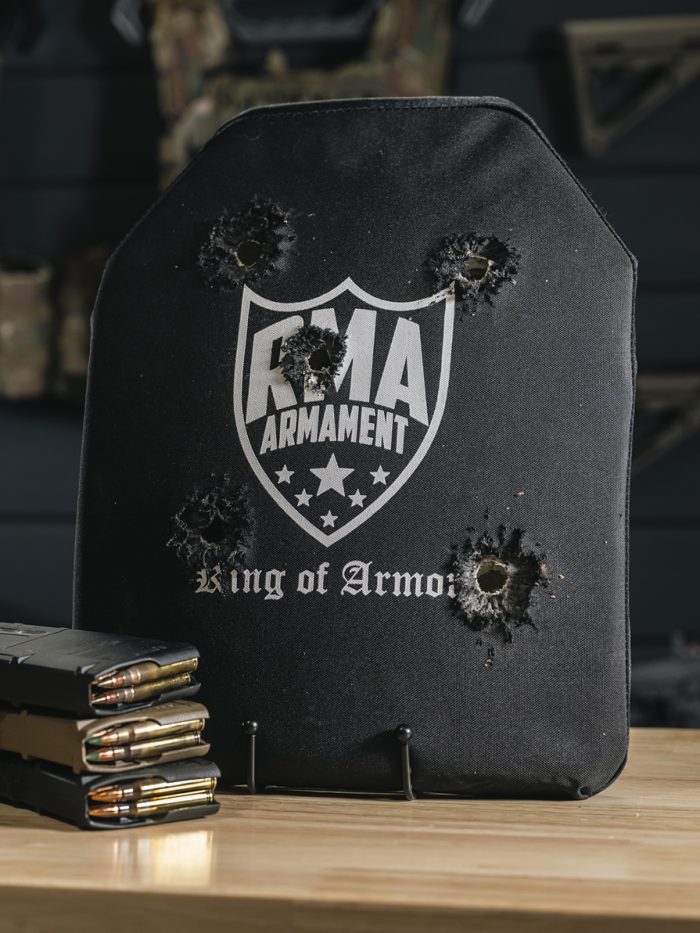
LIGHTWEIGHT LEVEL 4 BODY ARMOR
In recent years, advancements in material science and manufacturing processes have led to the development of lightweight Level 4 body armor. We build these with advanced silicon carbide and boron carbide ceramics like the 1192 and ultra-high molecular weight polyethylene like the 1165 that are lighter than traditional ceramic plates made from Alumina + E-Glass. They offer the same level of protection against high-powered armor-piercing rifle rounds while reducing the weight and bulk of the armor. For the lightest level IV body armor, we recommend plates made from boron carbide ceramic and polyethylene like the 1192.
WHAT PLATE CARRIERS TO USE WITH LEVEL 4 BODY ARMOR
When choosing a plate carrier for Level IV body armor, it is important to select one that is able to hold a level 4 plate securely and comfortably. Your plate carrier should hold your level IV plate in position to provide optimum protection, coverage, and comfort. Our company offers a variety of plate carriers, each designed to fit certain needs.
For those looking for a standard, well-rounded plate carrier with side cummerbund expansion, the 0331 Tactical Tailwind Plate Carrier is a great option. We also offer the battle-proven Crye Precision JPC 1.0 and Crye JPC 2.0.
If you wish to get level 4 protection with an extended set of carrier features, you’ll want to check out the Shellback Banshee Elite 3.0 and the 0331 Tactical Sierra plate carriers.
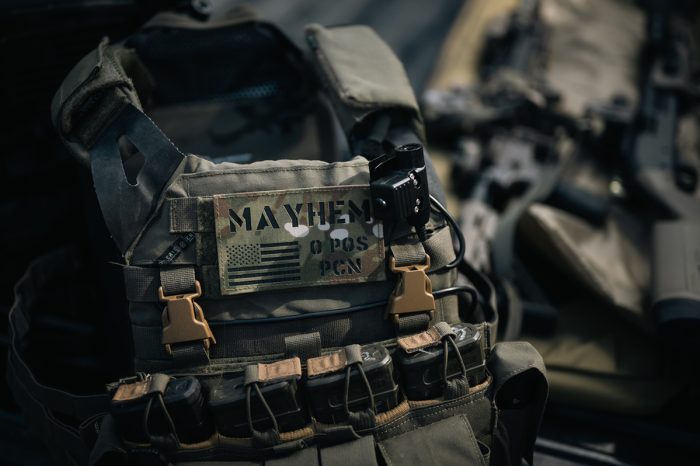
LEVEL 4 BODY ARMOR FAQS
If you are considering purchasing level IV body armor, you may have some questions about its effectiveness and practicality. Here are some frequently asked questions about level 4 body armor:
CAN CIVILIANS OWN LEVEL 4 BODY ARMOR?
Yes, civilians can legally purchase and own level 4 body armor in most states in the United States. However, some states like New York and Connecticut have restrictions regarding body armor, so it’s important to check the laws in your state before purchasing. Federal law prohibits convicted felons from owning body armor in the United States.
Many customers wonder if they have the same access to body armor as military personnel and law enforcement. There isn’t any secret sauce in body armor manufacturing. We all use the same materials and manufacturing technology. In fact, RMA plates available in our online store are in use with military and police forces across the US and around the world. You’re getting the same plates they use when you buy from RMA.
HOW MUCH DOES LEVEL 4 BODY ARMOR WEIGH?
The weight of level 4 body armor can vary depending on the material used, but it typically weighs between 5 and 10 pounds per plate. This dramatic difference in weight can make upgrading to lighter Level 4 plates like the 1165 and 1192 a no-brainer.
IS LEVEL IV BODY ARMOR CONCEALABLE?
We design body armor Level 4 to offer maximum protection. Accordingly, it isn’t very concealable. Ballistic plates level 4 are typically thicker than lower-level armor, so they are not as easily hidden under clothing. Most Level 4 plates will be between ¾ of an inch thick to a full inch thick. However, there are some specialized carriers and systems that are designed for covert use. We build the ESRT plate specifically to seamlessly conceal under regular clothing. It defeats most common FMJ and penetrator rounds and is only 0.5” thick. Combine it with the Krypsys Concealable Plate Carrier for optimal concealment.
ARE LEVEL IV PLATES BULLETPROOF?
No body armor is completely bulletproof. Level 4 body armor is designed to completely stop many high-powered and armor-piercing rifle rounds, but it may not be effective against more rare types of ammunition. Level IV plates are more than enough for virtually all people’s needs. RMA Armament manufactures all of our plates at our Centerville, Iowa factory. We’re proud to be American-Made. Plus, we invented the 10 armor year warranty. Finding the right high grade rifle plate is no longer difficult.
ARE LEVEL 4 PLATES STAB PROOF OR KNIFE RESISTANT?
Level 4 body armor is not designed to be stab-proof or knife resistant. While the plates may provide some level of protection against sharp objects, they are not specifically designed for this purpose. If you need protection against knives or other sharp objects, consider purchasing specialized stab or spike body armor. We’ve never met a person capable of punching a knife through a ceramic plate, but it isn’t something we’re specifically testing.
DO I NEED A TRAUMA PAD FOR MY LEVEL 4 PLATE?
We recommend a trauma pad for Level 4 body armor, but it is not required. When a high-powered bullet strikes a plate, it can cause back face deformation.
Back face deformation is a measurement of how much the impacted zone on the plate pushes rearward toward your body. We build all of our plates to allow an absolute maximum of 44mm of BFD on any rated threat per NIJ standard. However, you can insert trauma pads behind your plate to help mitigate BFD.
We make trauma pads from special closed-cell foam that minimizes the perceived impact upon the body.
CAN A LEVEL 4 PLATE STOP PISTOL ROUNDS?
Pistol rounds are extremely weak compared to rifle rounds. Any plate that defeats 30-06 M2AP easily defeats a barrage of common handgun rounds like 9mm and 45 ACP. Rifle-rated armor is much stronger than pistol-rated armor.
ARE THERE LEVEL 4 PLATES MADE FOR WOMEN?
Yes! We make women’s level 4 plates. We manufacture women’s Level III and ultra-lightweight women’s SRT plates as well. The SRT plates are only 1.9 lbs each, which is practically unheard of in rifle-rated armor. RMA even created a plate carrier made specifically for our women’s FSAPI line.
